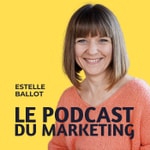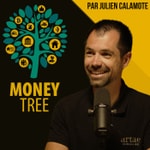What is The Future for Cities? – Details, episodes & analysis
Podcast details
Technical and general information from the podcast's RSS feed.

What is The Future for Cities?
Fanni Melles
Frequency: 1 episode/3d. Total Eps: 444

Recent rankings
Latest chart positions across Apple Podcasts and Spotify rankings.
Apple Podcasts
🇫🇷 France - socialSciences
01/08/2025#75🇫🇷 France - socialSciences
31/07/2025#69🇫🇷 France - socialSciences
30/07/2025#55🇫🇷 France - socialSciences
17/07/2025#93🇫🇷 France - socialSciences
16/07/2025#78🇫🇷 France - socialSciences
15/07/2025#68🇫🇷 France - socialSciences
14/07/2025#55🇬🇧 Great Britain - socialSciences
22/05/2025#97🇬🇧 Great Britain - socialSciences
21/05/2025#74🇬🇧 Great Britain - socialSciences
20/05/2025#49
Spotify
No recent rankings available
Shared links between episodes and podcasts
Links found in episode descriptions and other podcasts that share them.
See all- https://twitter.com/WTF4Cities
265 shares
- https://twitter.com/allisondman
2 shares
RSS feed quality and score
Technical evaluation of the podcast's RSS feed quality and structure.
See allScore global : 48%
Publication history
Monthly episode publishing history over the past years.
252I_Allison Duettmann, the president and CEO of Foresight Institute
Episode 252
mercredi 4 septembre 2024 • Duration 58:52
"You are the product of the city you grew up in, but you can accurately shape it and move to different cities."
Are you interested in existential hope? What do you think how are you influenced by the city around you? How can we use foresight to peak into the future?
Interview with Allison Duettmann, the president and CEO of Foresight Institute. We talk about her vision for the future of cities, longevity, utilitarianism, cloud-first cities, urban diversity and changing behaviours, and many more.
Allison Duettmann is the president and CEO of Foresight Institute. She directs the Intelligent Cooperation, Molecular Machines, Biotech & Health Extension, Neurotech, and Space Programs, Fellowships, Prizes, and Tech Trees, and shares this work with the public. She founded Existentialhope.com, co-edited Superintelligence: Coordination & Strategy, co-authored Gaming the Future, and co-initiated The Longevity Prize. She advises companies and projects, such as Cosmica, and The Roots of Progress Fellowship, and is on the Executive Committee of the Biomarker Consortium. She holds an MS in Philosophy & Public Policy from the London School of Economics, focusing on AI Safety.
Find out more about Allison through these links:
- Allison Duettmann on LinkedIn;
- @allisondman as Allison Duettmann on X;
- Allison Duettmann at Foresight Institute;
- Foresight Institute website;
- @foresightinst as Foresight Institute on X;
- Foresight Institute on YouTube;
- Existential Hope website;
Connecting episodes you might be interested in:
- No.065R - The network state;
- No.090 - Interview with Matthew McCartney from the Charter Cities Institute;
- No.111 - Interview with Dave Hakkens about completely rethinking cities;
- No.222 - Interview with Adam Dorr about science-based optimism;
- No.251R - Existential risk and existential hope
What wast the most interesting part for you? What questions did arise for you? Let me know on Twitter @WTF4Cities or on the wtf4cities.com website where the shownotes are also available.
I hope this was an interesting episode for you and thanks for tuning in.
Music by Lesfm from Pixabay
251R_Existential risk and existential hope: Definitions (research summary)
Episode 251
lundi 2 septembre 2024 • Duration 09:57
Are you interested in existential hope instead of existential risk?
Summary of the article titled Existential risk and existential hope: Definitions from 2015 by Owen Cotton-Barratt and Toby Ord, published by the Future of Humanity Institute.
This is a great preparation to our next interview with Allison Duettmann in episode 252 talking optimism and existential hope.
Since we are investigating the future of cities, I thought it would be interesting to see the opposite of existential risk in our doom and gloom world. This article presents the existential hope concept, the chance of something extremely good happening.
As the most important things, I would like to highlight 3 aspects:
- The concept of "existential hope" is introduced, highlighting the importance of pursuing transformative events that can greatly improve humanity's future prospects.
- Existential risks are events that could either wipe out humanity or drastically limit its future potential.
- Existential catastrophes could be defined by the loss of expected value, which accounts for events that reduce humanity's future potential even without immediate extinction.
You can find the article through this link.
Abstract: We look at the strengths and weaknesses of two existing definitions of existential risk, and suggest a new definition based on expected value. This leads to a parallel concept: ‘existential hope’, the chance of something extremely good happening.
Connecting episode you might be intersted in:
- No.101R - What we owe the future (book summary)
- No.178R - Brighter (book summary)
- No.222 - Interview with Adam Dorr about a brighter future
You can find the transcript through this link.
What wast the most interesting part for you? What questions did arise for you? Let me know on Twitter @WTF4Cities or on the wtf4cities.com website where the shownotes are also available.
I hope this was an interesting episode for you and thanks for tuning in.
Music by Lesfm from Pixabay
245R_Urban resilience: Bridging the gap where cities and towns embrace abundance (research summary)
Episode 245
lundi 12 août 2024 • Duration 08:25
Are you interested in urban resilience to create abundance?
Summary of the book chapter titled Urban resilience: Bridging the gap where cities and towns embrace abundance from 2024 by Boyd Cohen, part of the Abundance Capitalism book.
This is a great preparation to our next interview with Boyd Cohen in episode 246 talking about abundance capitalism regarding cities.
Since we are investigating the future of cities, I thought it would be interesting to see how cities can be catalysts for resilience changes. This chapter presents a shift that recognizes cities not just as resource-hungry entities but as potential catalysts for positive change.
As the most important things, I would like to highlight 3 aspects:
- Innovative concepts like 15-minute cities and circular cities aim to make urban living more sustainable and accessible.
- Vancouver's Athlete’s Village and Tokyo’s flexible housing approach showcase effective methods for creating eco-friendly and affordable urban environments.
- The Fab City initiative promotes self-sufficiency and resilience by encouraging local manufacturing and innovation within cities.
You can find the book through this link and the chapter through this (links updated once their are live).
Connecting episodes you might be interested in:
- No.129 - Interview with Alan Donegan about the vast opportunities in cities
- No.212 - Interview with Jonathan Reichental about abundant energy
You can find the transcript through this link.
What wast the most interesting part for you? What questions did arise for you? Let me know on Twitter @WTF4Cities or on the wtf4cities.com website where the shownotes are also available.
I hope this was an interesting episode for you and thanks for tuning in.
Music by Lesfm from Pixabay
185R_Systems thinking as a paradigm shift for sustainability transformation (research summary)
Episode 185
lundi 15 janvier 2024 • Duration 10:11
Are you interested in a paradigm shift for sustainability transformation?
Our summary today works with the article titled Systems thinking as a paradigm shift for sustainability transformation from 2022 by N. Voulvoulis, T. Giakoumis, C. Hunt, V. Kioupi, N. Petrou, I. Souliotis, C. Vaghela, WIH binti Wan Rosely, published in the Global Environmental Change journal.
This is a great preparation for our next interviewee, Tom Bosschaert in episode 186 talking about integrated sustainability and systems thinking approaches.
Since we are investigating the future of cities, I thought it would be interesting to see how a holistic, integrated and interdisciplinary thinking can enable conditions for sustainability to emerge. This article advocates for a systemic approach to sustainability, emphasizing the need for comprehensive strategies that address interconnected environmental, social, and economic challenges.
As the most important things, I would like to highlight 3 aspects:
- Systems thinking is essential for addressing the interconnected nature of global sustainability challenges, moving beyond traditional, isolated approaches.
- Effective implementation of the Sustainable Development Goals requires transformative strategies that recognize the interdependencies among these goals.
- A paradigm shift in policy, education, and societal behaviour is crucial for achieving true sustainability, focusing on holistic solutions rather than symptomatic treatments.
Find the article through this link.
Abstract: The Sustainable Development Goals (SDGs), adopted as reference and universal guidepost for transitioning to Sustainable Development by the United Nations in 2015 as part of the 2030 Agenda for Sustainable Development, are intended to be used as a set of interconnected goals and global targets for ‘Transforming our world’, as the 2030 Agenda is titled. This is a far more challenging task than business as usual; it requires systems thinking for understanding the conditions that generate and propagate sustainability challenges, moving away from the reductionist and anthropocentric thinking that created them in the first place. Taking a systems approach to addressing these challenges has been gaining currency with academics and policymakers alike, and here we make the case for holistic, integrated, and interdisciplinary thinking that challenges assumptions and worldviews, crucially based on public participation and engagement, to create the enabling conditions for sustainability to emerge. System transformations require interconnected changes to technologies, social practices, business models, regulations and societal norms, an intentional process designed to fundamentally alter the components and structures that cause the system to behave in its current unsustainable ways, a paradigm shift enabling the transition to sustainability.
Connecting episodes you might be interested in:
- No.020R - Antifragile (book summary);
- No.092R - The city as an urban interaction design platform;
- No.190 - Interview with Adrian McGregor talking about cities as complex organic systems;
- No.228 - Interview with Dominique Hes about system thinking;
You can find the transcript through this link.
What wast the most interesting part for you? What questions did arise for you? Let me know on Twitter @WTF4Cities or on the wtf4cities.com website where the shownotes are also available.
I hope this was an interesting episode for you and thanks for tuning in.
Music by Lesfm from Pixabay
186I_Trailer_Tom Bosschaert, the founder and director of Except Integrated Sustainability
samedi 13 janvier 2024 • Duration 01:27
Trailer for episode 186 - interview with Tom Bosschaert, the founder and director of Except Integrated Sustainability. We talk about his vision for the future of cities, stages of grief in sustainability, Orchid City, the City of Hope, and many more.
Find out more in the episode.
184I_Alby Bocanegra, the Chief Future Officer and Founder at The Urban Futurist Inc.
Episode 184
mercredi 10 janvier 2024 • Duration 40:17
"24-hour city embracing density and buzzing always"
Are you interested in the 24-hour city? What do you think about technology helping us being creative? How can we learn better from history?
Interview with Alby Bocanegra, the Chief Future Officer and Founder at The Urban Futurist Inc. We talk about his vision for the future of cities, collaboration, AI and smartness, human connections, and many more.
Alby Bocanegra currently serves as Chief Future Officer and Founder at The Urban Futurist Inc, a consultancy and advisory organization that is shaping the cities of the future. Prior to his role at Mastercard, Alby served the people of New York as Interim Chief Technology Officer in the Mayor’s Office of the Chief Technology Officer (MOCTO). He has dedicated his career to building expertise in talent architecture, business strategy, and performance management with a passion for civic tech. Alby spends his time studying future technologies and makes predictions of the impact and implications they’ll have on cities, the people that live in them and the ecosystems that will need to be developed to ensure that all can benefit. As an advisor and consultant, he shapes strategies, governance models and facilitates engagements focused on delivering a better tomorrow for people. Alby also lends his expertise as an Advisory Board Member on Digital Twins to the World Economic Forum.
Find out more about Alby through these links:
- Alby Bocanegra on LinkedIn;
- @albybocanegra as Alby Bocanegra on X;
- The Urban Futurist Inc. on LinkedIn;
- Alby Bocanegra at the Charter Cities Institute;
- Alby Bocanegra at the Word Urban Forum;
- Alby Bocanegra at the Smart Cities Coucil;
- Urban Futurism for Smarter Cities podcast with Alby Bocanegra;
Connecting episodes you might be interested in:
- No.015 - Interview with Luke Housego about data and knowledge;
- No.126 - Interview with Corey Gray about beauty as a feature for sustainability;
- No.183R - 24-hour cities network;
What wast the most interesting part for you? What questions did arise for you? Let me know on Twitter @WTF4Cities or on the wtf4cities.com website where the shownotes are also available.
I hope this was an interesting episode for you and thanks for tuning in.
183R_24-hour cities network: Policy and strategy recommendations (research summary)
Episode 183
lundi 8 janvier 2024 • Duration 09:57
Are you interested in the 24-hour city?
Summary of the policy paper titled 24-hour cities network: Policy and strategy recommendations from 2023 by Andreina Seijas.
This is a great preparation for our next interviewee, Alby Bocanegra in episode 184 talking the 24-hour city and its advantages.
Since we are investigating the future of cities, I thought it would be interesting to see whether we are missing out without a night-time city. This article emphasizes the significance of nighttime economy and governance in contemporary urban planning, offering practical recommendations for cities to thrive 24/7.
As the most important things, I would like to highlight 3 aspects:
- The transformation of nighttime perception in cities, from being associated with crime to a vibrant time for economic and cultural activities, is a fundamental shift in urban planning.
- The appointment of "night mayors" in over 60 cities worldwide highlights a proactive approach to governing and enhancing urban life during night hours, focusing on inclusivity and vibrancy.
- The COVID-19 pandemic underscored the significance of the nighttime economy, particularly in culture, nightlife, and hospitality, revealing its vital role in the overall urban ecosystem.
Find the article through this link.
Connecting episodes you might be interested in:
- No.090 - Interview with Matthew McCartney about economics and cities;
- No.106R - Smart cities as a platform for technological and social innovation in productivity, sustainability and livability;
You can find the transcript through this link.
What wast the most interesting part for you? What questions did arise for you? Let me know on Twitter @WTF4Cities or on the wtf4cities.com website where the shownotes are also available.
I hope this was an interesting episode for you and thanks for tuning in.
Music by Lesfm from Pixabay
184I_Trailer_Alby Bocanegra, the Chief Future Officer and Founder at The Urban Futurist Inc.
vendredi 5 janvier 2024 • Duration 01:16
Trailer for episode 184 - interview with Alby Bocanegra, the Chief Future Officer and Founder at The Urban Futurist Inc.
We will talk about his vision for the future of cities, collaboration, AI and smartness, human connections, and many more.
Find out more in the episode!
Music by Lesfm from Pixabay
182I_Ted Baillieu, former Premier of Victoria and architect
Episode 182
mercredi 3 janvier 2024 • Duration 53:57
"We have the most expensive construction industry but not the best quality."
Are you interested in urban retrofitting? What do you think about the materials used in the built environment? How can we provide better urban services?
Interview Ted Baillieu, the former Premier of Victoria and architect. We will talk about his vision for the future of cities, affordability, cities with split personalities, getting families back in cities, regreening cities, and many more.
Ted Baillieu is an architect and a Victorian politician. During his time in Parliament 1999-2014, Ted served as Premier of Victoria and Minister for the Arts from 2010 to 2013, and held Shadow Portfolios in Tertiary Education, Training, Gaming, Planning and the Arts. Since 2013 Ted is currently an Adjunct Professor at Swinburne University, School of Design, and Melbourne University’s Honorary Enterprise Professor associated with the Faculty of Architecture, Building & Planning. He Co-Chaired the Victorian Government’s Cladding Task Force (2017-2019) and Chaired the Victorian Government’s ANZAC Centenary Committee (2013-2019). He has more than 20 years as a practicing architect (Mayne & Baillieu) and was formerly Trustee Melbourne Convention & Exhibition Trust, Board Member Tourism Victoria, Melbourne Comedy Festival and Australian Children’s Television Foundation, and Patron of Multicultural Arts Victoria.
You can find out more about Ted through these links:
- Ted Baillieu on LinkedIn;
- @TedBaillieu as Ted Baillieu on X;
- Ted Baillieu on Wikipedia;
- Ted Baillieu at the Parliament of Victoria;
Connecting links you might be interested in:
- No.048 - Interview with Hussein Dia about urban mobility opportunities;
- No.117 - Interview with Colin Chee about the small footprint living in cities;
- No.181R - Built environment prototyping for design-value;
What wast the most interesting part for you? What questions did arise for you? Let me know on Twitter @WTF4Cities or on the wtf4cities.com website where the shownotes are also available.
I hope this was an interesting episode for you and thanks for tuning in.
181R_Built environment prototyping for design-value (research summary)
Episode 181
lundi 1 janvier 2024 • Duration 08:47
Are you interested in how to make prototypes for the built environment?
Summary of the article titled Built environment prototyping for design-value from 2023 by Darcy Zelenko and Duncan Maxwell, published in the Proceedings of the IASS Annual Symposium 2023.
This is a great preparation for our next interviewee, Ted Baillieu in episode 182 talking about why experimenting with the built environment is very important.
Since we are investigating the future of cities, I thought it would be interesting to see how we could use prototyping to trial specific solutions. This article proves the prototyping is a value-adding activity but there are inherent fragmentations for the built environment disciplines.
As the most important things, I would like to highlight 3 aspects:
- Prototyping in the built environment, less common than in industries like engineering or software development, plays a crucial role in refining complex designs before construction, underscoring the need for its wider adoption and more integrated methods.
- While prototyping enhances design quality, communication, and decision-making efficiency, its underutilization in the built environment limits knowledge sharing and the adoption of efficient construction methodologies, such as Design for Manufacture and Assembly (DfMA).
- There is a significant opportunity for advancement in the built environment by developing an integrated prototyping model that combines idea conceptualization and physical implementation, tailored to its unique requirements, which could transform practices and lead to more efficient, resource-saving buildings.
Find the article through this link.
Abstract: The built environment is hindered by issues relating to laggard productivity, with practitioners looking to pursue sector-wide industrialisation and digitisation to improve this issue. Contrastingly, industries that have achieved widespread industrialisation and digitisation also possess developed prototyping cultures. Within these industries, prototyping approaches are tailored to suit the nature of the specific output product. Prototyping in the built environment acts as a tool for representation, testing, and communication. Prototyping approaches vary across the constituent disciplines with a lack of influential approaches or methods of the kind illustrated in other industries. This paper uses critical analysis to review prototyping literature from influential approaches found in engineering design, software development, and design management. These are compared to approaches used in the built environment disciples of architecture, engineering, and construction research. The findings confirm that prototyping is a value-adding activity, but suggest that prototyping cultures and outcomes in the built environment are inhibited by fragmentation that is inherent in the discipline. Future research could surround the development of prototyping approaches that enable practitioners to get the most out of the process. Such a protoyping approach would that also recognises that the creation of buildings requires both idea conceptualisation, and physical implementation to deliver quality outcomes.
Connecting episode you might be interested in:
- No.168 - Interview with Jennifer George about experimenting instead of trial and error;
You can find the transcript through this link.
What wast the most interesting part for you? What questions did arise for you? Let me know on Twitter @WTF4Cities or on the wtf4cities.com website where the shownotes are also available.
I hope this was an interesting episode for you and thanks for tuning in.
Music by Lesfm from Pixabay









